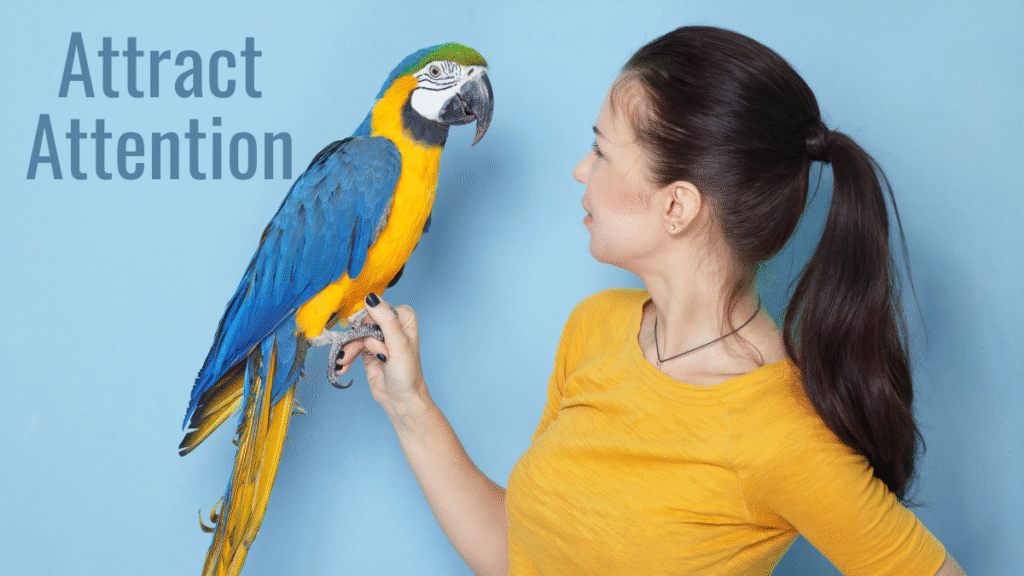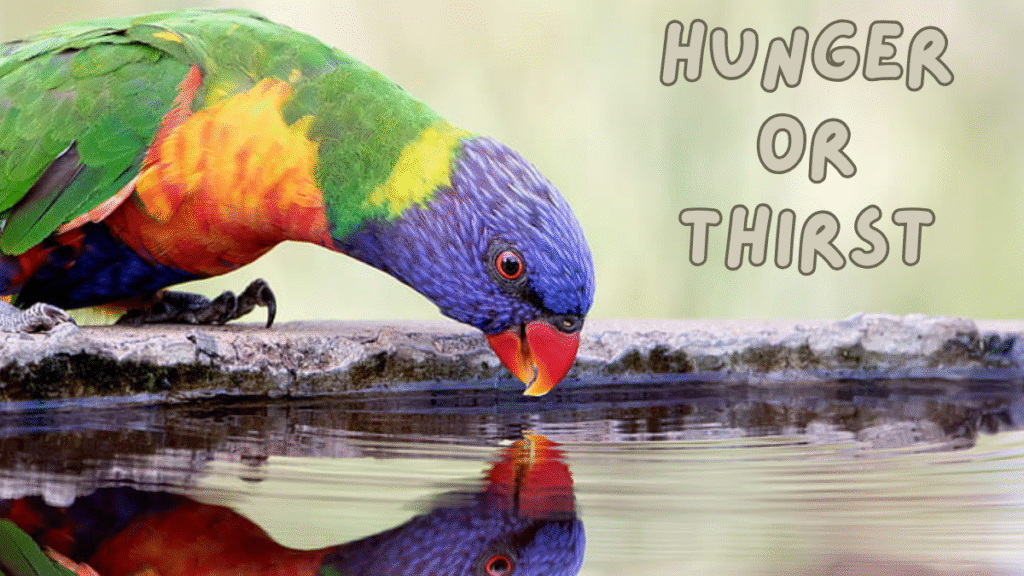Why do parrots scream?
Parrots are, through their very nature, talkative creatures; however, if yours is screaming all the time, there may be something gravely incorrect. The key matters to genuinely recognize are that when a parrot yells, it would not truly simply create sounds; however, in addition to going, it intends something. Now, the high-quality component to do is to analyze the conduct of your very own parrot.
The following is what we shall discuss in this guide:
- Why do parrots scream?
- Common causes of excessive noise
- How to cut down and prevent screaming
Why do parrots scream?
Parrots produce all forms of sounds, starting from talking, chirping, and whistling to screaming. In nature, those high-pitched sounds are produced for important functions:
- Flock communication system—parrots scream in order to call other flock members to communicate about safety, food, and social purposes.
- Alert System—Sudden sounds to alert other flock members of potential predators or harm.
- Natural Sounds—Parrots scream in the morning and evening as part of their everyday routine.
Screaming by pet parrots is also quite common for these reasons, though screaming too much or suddenly could be an indicator of an issue that must be resolved.
Common Reasons Why Parrots Scream
1. Attention

Parrots are very social and expand close relationships with their proprietors. If they perceive that they’re being ignored, they may scream to attract attention.
Tips:
- Spend time with your parrot daily (talk, train, play).
- Don’t encourage bad habits—don’t respond to screaming and reward them when they are quiet.
- Give them activities for mental stimulation.
2. Boredom and lack of mental stimulation
Parrots are highly intelligent and should be kept active regularly. If bored, they can scream in frustration.
Tips
- Change toys (finding, puzzle, shredding) using different ones.
- Train the parrot to perform tricks or learn vocabulary.
- Keep music or the TV on to minimize boredom.
3. Hunger or thirst

If they are hungry, thirsty or do not get important nutrients, parrots can scream.
Tips
- Have regular feeding schedules.
- Give a balanced diet (pellets, fruits, vegetables, and clean water).
- Let the feeding time be fun, e.g., by introducing exploratory activities.
4. Fear, stress, or anxiety
Parrots are sensitive to their environment and could become too noisy due to stress.
Tips:
- Eliminate and remove sources of stress.
- Position the parrot’s cage in a peaceful and stable area.
- Create a stable sleeping routine (parrots require 10-12 hours of dark night sleep).
5. Behavior related to hormones (screaming at breeding time)
At breeding time, parrots enjoy hormonal fluctuations, leading to aggression, territorial behavior, and over-screaming.
Tips:
- Refrain from over-petting, in particular the stroking of the back and below wings.
- Manage artificial lighting (keep lights on for fewer than 12 hours daily).
- Offer new toys or activities to divert attention away from hormonal stimuli.
6. Learned Behavior and Rewarding
Parrots are very sensible and may be taught that screaming will get a response from the owner. If you react each time the parrot screams, it’ll scream louder.
Tips:
- Do not react to screaming at all.
- Reward the parrot for staying quiet.
- Train an alternative sound (like whistling or speaking) that the parrot can use in place of screaming.
Tips to Reduce Parrot Screaming
- Recognize Triggers—Note when and why the parrot screams.
- Satisfy Basic Needs—Ensure the parrot has food, water, and intellectual stimulation.
- Ignore interest-seeking screaming— Do no longer react to the screaming; rather, praise calmness.
- Implement positive reinforcement – Praise and reward the parrot at quiet moments.
- Engage intellectual stimulation—Keep the parrot busy with interactive toys and education.
- Establish a recurring—Set a ordinary for normal feeding, sound asleep, and playing instances for the parrot.
When you need professional assistance
If your parrot’s screaming is beyond control and is not improving in spite of every effort, you should take an avian therapist’s or bird behaviorist’s help. Excessive noise can be due to:
- Pain or sickness (if it is followed by other signs like feather plucking or lethargy).
- Severe trauma or anxiety (particularly in rehomed parrots).
- Behavioral disorders that need professional training.
Final Thoughts
Parrots are talkative by means of nature, but screaming too much is usually a demonstration of a few needs now not being fulfilled. Whether because of boredom, attention, strain, or starvation, the answer lies in understanding the cause for the trouble. Through mental stimulation, preserving a set routine, and high-quality reinforcement, you may set up an excellent rapport along with your parrot with no unsightly noise.
Would you like assistance with a personal solution to your specific parrot breed? Just let me know!
FAQs
Is it normal for parrots to scream during the day?
Yes, parrots naturally vocalize during sunrise and sunset, but frequent screaming often indicates an unmet physical or emotional need.
Can parrots scream due to boredom?
Yes, lack of mental stimulation can cause frustration, leading parrots to scream out of boredom or restlessness.
How can I tell if my parrot is screaming for attention?
Parrots scream when left alone, then quiet down when interacted with, signaling attention-seeking behavior.

